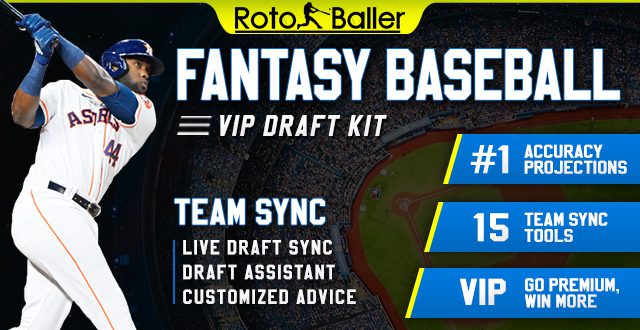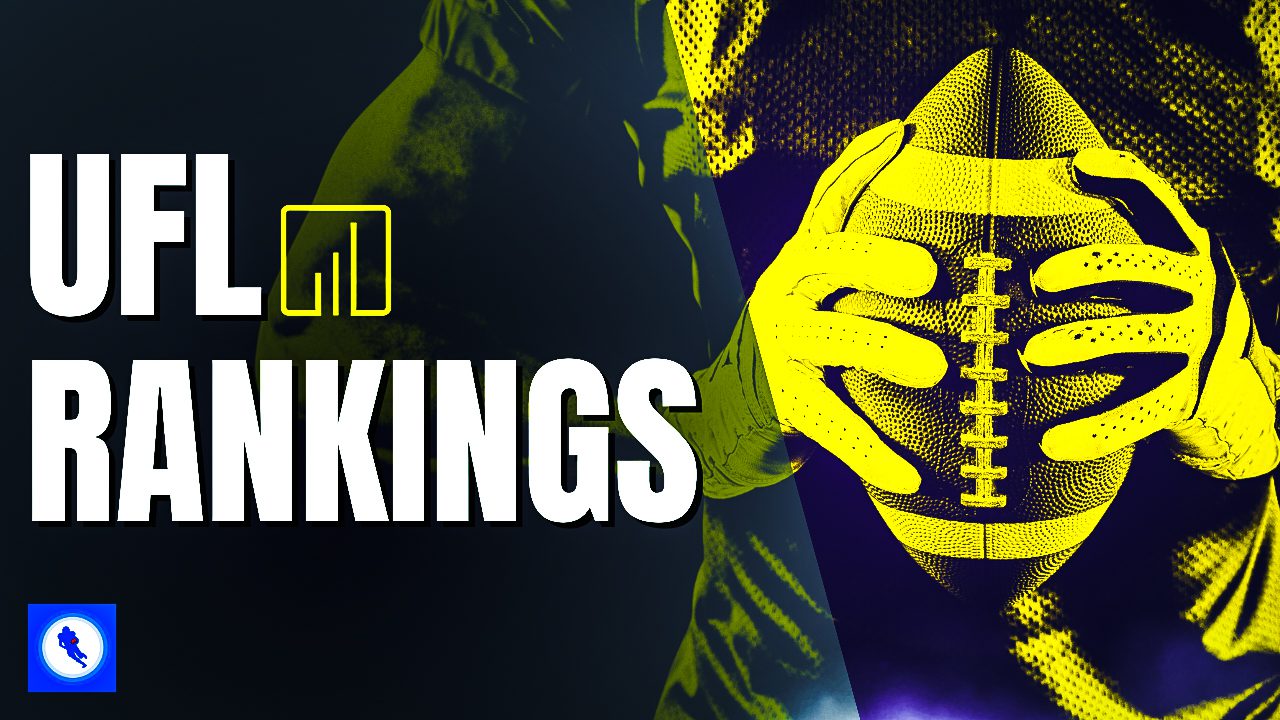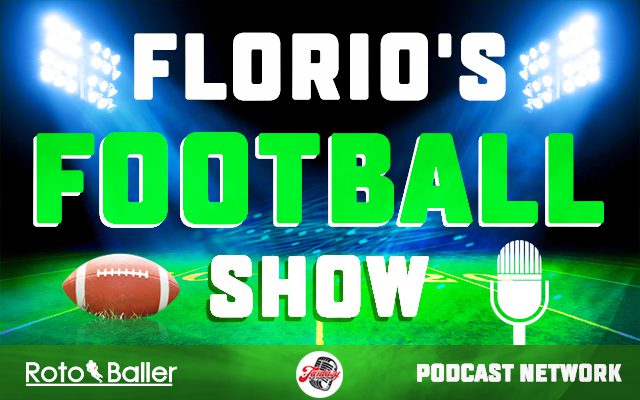Over the next two weeks, our writers will be offering their most audacious projections for the 2017 fantasy baseball season. This is my third go-round with this series.
I've had some great successes and some equally terrible calls in both previous attempts, and this year should be no different. Hopefully the former outweigh the failures, but even if not, it's always fun to look back and laugh.
Let's get to it.
Be sure to check all of our fantasy baseball lineup tools and resources:- Fantasy baseball trade analyzer
- BvP matchups data (Batter vs. Pitcher)
- PvB matchups data (Pitcher vs. Batter)
- Who should I start? Fantasy baseball comparisons
- Daily MLB starting lineups
- Fantasy baseball closer depth charts
- Fantasy Baseball live scoreboard
- Fantasy baseball injury reports
Bold Predictions for 2017
1. Jose Peraza outperforms Billy Hamilton in standard leagues.
With the Brandon Phillips trade, the Reds handed the keys to the keystone over to Peraza, who impressed as a rookie. In a little under half a season’s worth of plate appearances, the 22 year old hit .324 and stole 21 bases. While he’s not quite as fast as Hamilton – few if any are – there’s reason to believe that Peraza will be a better hitter. He makes more and better contact than his teammate, and the projection systems all tab him for a better offensive performance. Should Hamilton continue to struggle at the plate, he could yet again lose his grip on the leadoff spot – this time to Peraza.
2. Edwin Diaz finishes as the No.1 reliever.
Only five relievers posted a strikeout rate above 40% last season: Andrew Miller, Dellin Betances, Kenley Jansen, Aroldis Chapman, and Diaz. Only three pitchers have ever tallied a K/9 above 15: Jansen, Craig Kimbrel, and…hey, wouldja look at that, there’s Diaz again. Diaz put up a 2.79 ERA and 1.16 WHIP despite an inflated .377 BABIP. He was 22 years old, and had logged less than 150 innings above A-ball before arriving in the majors. Kid’s legit, is what I’m trying to say.
3. Jake Lamb is a top-5 third baseman.
Listen, we all know the hot corner is stacked this year, particularly at the top. But Lamb being the 16th third baseman off the board is just bananas. He completely crushed the league in the first half last season, hitting .291/.371/.612 with 20 home runs and 110 R+RBI in 85 games. Then a hand injury wrecked his season. You might think Lamb was due for some regression anyway, and that’s a valid argument; he probably wasn’t going to keep running a 28.2 HR/FB%. But he plays in a great park for hitters and will be batting behind Paul Goldschmidt and A.J. Pollock again.
4. Byron Buxton has a 20/40 season.
It feels like he’s been around forever, but Buxton is just 23 years old. He’s had some rough luck with injuries that cost him development time. The Twins also haven’t done him many favors as an organization, first rushing him to the major leagues and then mucking around with his mechanics. Late last season, Buxton began using a leg kick again and pulling the ball more often. As a result, he hit .287/.357/.653 with nine homers and 46 R+RBI in September. Yes, he still struck out a ton, and that’s going to make it tough for him to hit for average. But he’s flashed power, and he’s one of the fastest players in the game.
5. Wil Myers finishes outside the top 12 at first base.
All right, enough of these optimistic, pie-in-the-sky predictions. It’s time to throw some shade. Myers came tantalizingly close to the first 30/30 season in MLB since 2012, hitting 28 home runs and stealing 28 bases. This, however, came after a pair of injury-riddled seasons in which he managed to play a total of only 147 games. Beyond the injury risk, there’s the dirty little secret that for most of last season, Myers wasn’t actually that good of a hitter. He was good in April and incredible in June, but awful in May and for most of the second half. After the break, Myers’ strikeout rate jumped seven percent points, and his ISO fell by almost 80 points. Now if you’ll excuse me, I’m gonna go home and put some water in Buck Nasty’s momma’s dish. Good ev’nin'.
6. Tom Murphy is a top-8 catcher.
The biggest obstacle for this one might be playing time. The Rockies plan to have Murphy split time with Tony Wolters behind the plate this year. Wolters can’t hit much, but he’s reckoned to be a pretty good pitch framer. Pitch framing is an area in which the Rockies have long been lousy, and it makes sense that they’d want to be among the best in the game at it. When you call Coors Field home, being able to steal strikes could be plenty valuable. But Murphy looks like at least an average framer, and he’s got some thump in his bat, having slugged over .600 the last two seasons at both Triple-A and in the majors. Contact issues will likely keep his average on the low side, but how many backstops hit for average anyway?
7. Edwin Encarnacion is not a top-10 first baseman.
Encarnacion has been one of the best and most consistent hitters in baseball this decade. He leads MLB in home runs during that time, and is ninth in runs scored and third in RBI. During these six seasons, E5 has produced a .272-87-35-101-6 line. So why the bearish prediction? FanGraphs’ Andrew Perpetua wrote a great article a few weeks ago about Statcast data for some aging sluggers, Encarnacion among them. There are some real red flags here, especially with Encarnacion entering his age-34 season and moving to a less homer-friendly division.
8. Aaron Nola is a top-20 starting pitcher.
Through his first 12 starts last season, Nola had pitched to a 2.65 ERA and 0.99 WHIP. He was striking out over a batter per inning and nearly six batters for every one he walked. Then his season fell apart thanks to a combination of an elbow injury and truly horrific luck – he had a .464 BABIP (!) and a strand rate of 49% (!!!!!) in his last eight turns. He’s under no restrictions this spring but isn’t going off the board until after pick 200 on average.
9. All three starters in the Brewers’ outfield are top-25 outfielders.
Ryan Braun, of course, is well established as an elite outfielder. Assuming he can avoid a lengthy DL stint, he’ll be a top-25 outfielder, and could possibly crack the top 10. The focus of this prediction, then, naturally rests on Keon Broxton and Domingo Santana. Broxton has been getting some hype in fantasy circles this winter. He has serious contact problems, but he hits the crap out of the ball when he makes contact. He also posted a 14.8% walk rate, which helped him get on base enough to rack up 23 steals in less than half a season. He also hit nine homers and played quality defense in center. So yeah, he’s fascinating. Santana has been more overlooked, probably due to missing a good chunk of last season with injury and the fact that he’s not as much of a rabbit as Broxton. He does, however, profile similarly in terms of his plate discipline and contact quality.
10. Aaron Sanchez finishes outside the top 40 starting pitchers.
As mentioned in the intro, this is my third year writing this piece. In each of the first two installments, I correctly identified a pitcher everyone loved who was on a first-class flight to Bustville. In 2015, it was Julio Teheran, and last year, it was Sonny Gray. This time around, I’m bestowing the kiss of death upon Sanchez. The Blue Jays’ young ace took a big step forward last season. However, he still only ran a 12.4 K-BB%, putting him on the level of back-end starters like Jaime Garcia and Wade Miley. As a result, ERA estimators still don’t love Sanchez. A glance at his BABIP marks to this point in his career would suggest he has some suppression ability, but Statcast data doesn’t support that assertion. His exit velocity metrics were nothing special.
 RADIO
RADIO


























